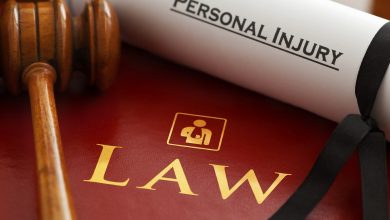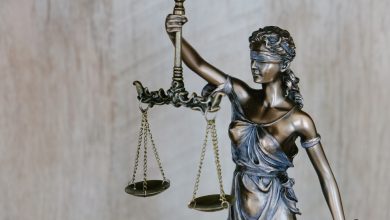Felony Cases and Your Fifth Amendment Rights
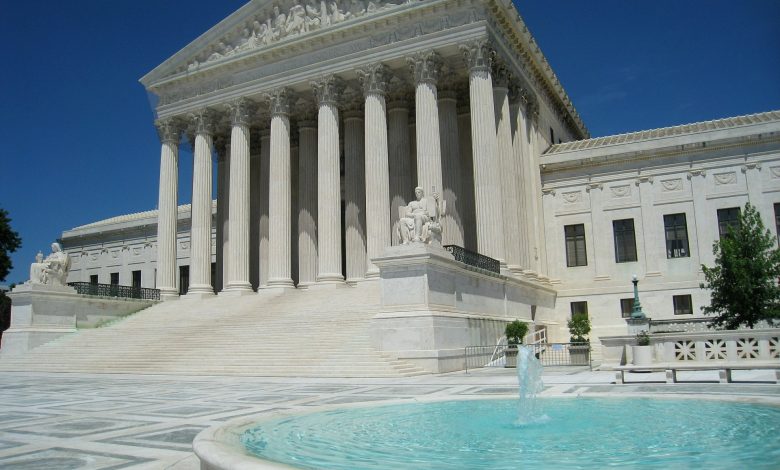
In 1905, the Supreme Court’s decision on Lochner v. New York established the substantive due process definition that the legal system follows today. One week, a Lochner’s Home Bakery worker decided to commit over sixty hours of labor at the company. As simple as that seems, what happened next shaped the way that courts treat all sorts of due process examples and cases today. Moreover, the 1905 ruling further enhanced the other Fifth Amendment rights that felons enjoy. For instance, people call it the ‘Double Jeopardy Amendment’ for a reason.
When the bakery’s worker clocked in over sixty weekly hours, New York officials arrested Joseph Loncher (the business owner). They also slapped a fifty dollar penalty. This is the equivalent of more than thirteen hundred dollars in 2019. The state required Loncher to either pay the amount or serve a fifty-day jail sentence. However, this is where the Supreme Court comes in.
America’s leading legal arbitrator ruled in favor of Loncher in 1905. Firstly, the justices adopted a substantive due process definition that prohibited states from infringing on people’s rights. To clarify, the Supreme Court determined that New York’s law, which prohibited bakers from working over sixty hours per week, was unconstitutional. As a result, accused felons had expanded rights, which complement the many existing protections that the Double Jeopardy Amendment gives them.
The Fifth Amendment: There Since 1776
The Founding Fathers included the Fifth Amendment in the U.S Constitution when they initially wrote it. The Founders wanted to ensure that the government couldn’t arbitrarily arrest people and deprive them of their rights. Instead, the Founders mandated that any prosecutor (i.e. law enforcement and executive officers) must follow a certain process during civil and criminal cases. Filing a lawsuit in court, sending out trial date notices, collecting evidence, and taking a felon to prison are all due process examples.
However, throughout the years, the U.S. Supreme Court and Congress modified the Fifth Amendment. The 1905 ruling, for example, laid out the substantive due process definition that prevents state governments from enacting laws that infringe on people’s privacy and freedom. It also applies to the U.S Congress. In fact, the House and Senate, alongside the President, added the Fourteenth Amendment to the Constitution during the 1860s. The new law gave Americans more due process protections.
The Fifth and Fourteenth Amendments are very similar, but some key differences exist. Firstly, the former has to do with federal prosecutions, while the latter governs the states. Secondly, the Fifth outlines every felon and criminal defendant’s rights before, during, and after their case. Legal experts dub it as the Double Jeopardy Amendment, for instance, because it prohibits the government from going after a suspect twice. The Fourteenth Amendment, on the other hand, safeguards people, in general, from unfair laws or rules.
We will focus on the Fifth since the Amendment is mostly concerned with criminal trials and felony cases.
Your Fifth Amendment Rights
Defendants have certain and guaranteed rights. Prosecutors can’t violate or compromise them. Otherwise, their entire case will immediately fall apart. The Fifth Amendment applies even when the accusers have strong evidence against you. For example, a police officer searches your phone without a warrant and finds text messages that prove a criminal act.
Because law enforcement didn’t obtain a warrant (which also violates the Fourth Amendment), they denied you your due process rights. Consequently, a court will likely rule in the defendant’s favor, regardless of what the text messages revealed. There are many other due process examples that fall under the Fifth and, at the same time, other constitutional amendments.

Nonetheless, here are the main rights that every felon is entitled to through the Double Jeopardy Amendment:
- Defendants can refuse to answer questions if they are worried about self-incrimination. That is to say, prosecutors can’t force you to reveal information that would prove your wrongdoing or lead them to evidence. This is why the term “plead the Fifth” is popular.
- You have the right to have a lawyer who would interact with the government and answer questions on your behalf. In fact, even when you can’t afford an attorney, the court will appoint one to act as your representative.
- Every accused felon will present their case in front of a grand jury, who are a group of neutral and unaffected civilians. Firstly, the jury must determine whether the prosecutors’ evidence is strong enough. The case moves to a court trial only after (and if) that happens. While the Fifth Amendment doesn’t require states to have a jury system, it certainly applies to federal felonies.
In short, the Fifth/Double Jeopardy Amendment covers your right to due process and a single/meaningful case (as opposed to repetitive retrials), alongside the protections listed above.
Due Process Examples and Types
Originally, the law only addressed the administrative part of criminal proceedings. However, almost a century and half after the Founding Fathers wrote the Constitution, the Supreme Court heard Loncher v. New York. Their decision introduced the modern-day substantive due process definition. As a result, defendants enjoyed expanded rights, including protection from unfair laws and abusive police/correctional officers.
To give an example, let’s assume that an accused felon is in jail pretrial. If the guards or supervisors mistreat them or deny the inmate enough phone time with their lawyer, the jail staff are violating the Supreme Court’s 1905 substantive due process definition.
The Procedural Due Process Definition
On the administrative side, criminal cases must follow a specific and clearly defined procedure. Firstly, prosecutors have to inform defendants that they are filing legal charges against them. This includes serving the court’s summons order and ensuring that the defendant personally receives the letter. Giving it to a family member or another person who resides in the same apartment/house will also suffice.
Otherwise, the judge will not hear a case until the defendant is properly served and notified. For instance, if someone moved and didn’t receive the letter, the court may accept that as an excuse and reschedule the trial. Similarly, prosecutors can’t purposefully avoid serving the accused felon in order to win by default. To clarify, when a defendant is absent, the court automatically rules in the prosecutor’s favor.
Secondly, the accused felon must have the chance to outline their case in front of a jury and judge. This includes being given enough time to prepare a defense and, if needed, talk with a lawyer. When a prosecutor ignores or violates these due process requirements, they are denying defendants their Fifth Amendment rights. In short, this invalidates the accuser’s claims and therefore makes the improperly obtained information or evidence invalid in court.
The Substantive Due Process Definition
Unlike the procedural part, substantive due process is controversial, and many legal scholars continue to debate its definition. However, when the Supreme Court ruled in favor of the baker in Lochner v. New York, they made it clear that draconian state laws violate the public’s Fifth Amendment protections. After all, the government doesn’t have the power to force people to work a certain number of hours per week.
While the Fourteenth Amendment regulates states, the Fifth still covers unfair laws on both of the local and federal levels. In addition, the substantive due process definition extends to law enforcement and correctional facilities. This includes how they treat jailed defendants and whether they deprive them of any legal entitlements. Separate sections of the Double Jeopardy Amendment offer felons different protections.
Due process laws specifically focus on three rights: life, liberty, and property. Firstly, life is deprived when someone is unjustly given the death penalty. Secondly, their liberty and freedom are taken away when they go to jail or prison without a fair trial. Thirdly, the government cannot randomly seize someone’s property and belongings (without a warrant, for instance).
Upholding Due Process
Both the Fifth’s original procedural requirement and the Supreme Court’s 1905 substantive due process definition protect these three rights. That is to say, if prosecutors violate them, the court will accept your defense and potentially rule in your favor. As an example, when police officers take someone’s phone without a warrant, they denied the defendant’s procedural due process rights. After that, the accused felon (or their lawyer) can demonstrate this violation in court. If successful, the judge will invalidate all the evidence that law enforcement improperly obtained, regardless of how much it reveals.
The substantive due process definition that the Supreme Court adopted over a century ago gives you rights that are certainly relevant in today’s legal system. While laws that prohibit freedom of speech or religion are currently uncommon, authorities cannot indirectly infringe on them. For example, the police spot an intoxicated person in public and suspected that they used illegal drugs. In this hypothetical instance, state laws didn’t protect digital assets (such as mobile devices) from warrantless searches. Consequently, the officers took the intoxicated suspect’s phone and found pictures of them consuming drugs.
After that, they filed charges against the now-accused felon. In court, the defendant may argue that state laws violate their Fifth Amendment rights. To clarify, because the police don’t need a warrant to seize someone’s phone, the law contradicts the Supreme Court’s 1905 substantive due process definition. A judge may not require the state to change it, but they will almost certainly dismiss the evidence because authorities inappropriately obtained it.
Jury Trials: A Balanced Case
The Fifth or Double Jeopardy Amendment protects felons before and after their trial. Initially, a grand jury must find that the evidence against a defendant is strong enough. After that, the case proceeds to a court trial. However, if a judge decides not to charge the accused violator, the government can’t prosecute them again. Meanwhile, when a judge finds someone guilty, the defendant may appeal the decision because the law allows them to get a retrial.
A Jury of Peers
Accused felons also have a right to present their case in front of a jury. Firstly, a group of six to twenty-three civilians evaluate the prosecutor’s arguments. The number depends on whether the case is in state (six or twelve) or federal (twelve to twenty-three) court. Other than that, only the prosecutor (and/or their lawyer) show the jurors the evidence. The defendant doesn’t speak in front of a jury and no judges oversee the process.
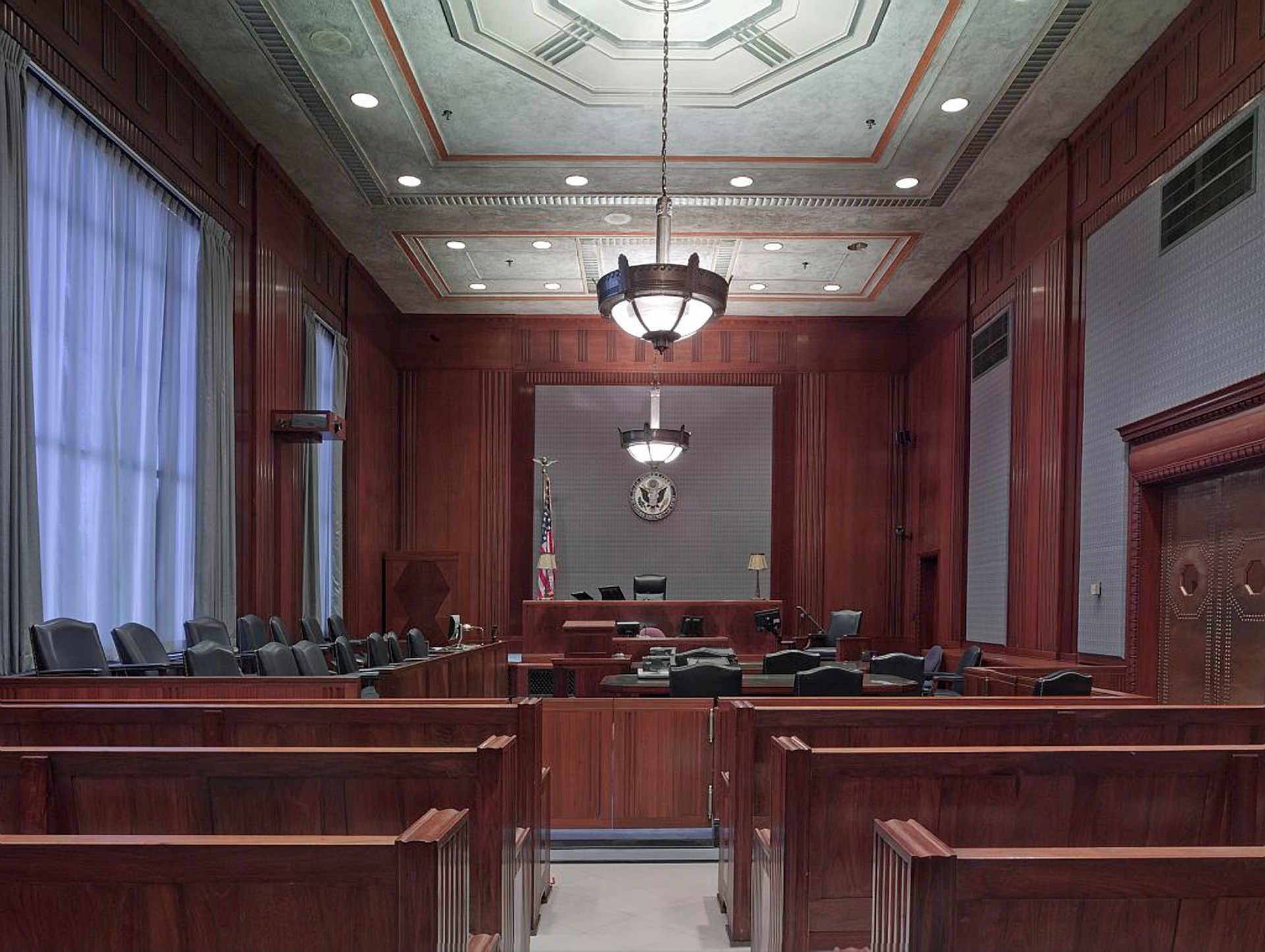
There are two things that accused felons should keep mind. Jury hearings prevent the government from charging someone without having enough evidence. Furthermore, in order to proceed to a court trial, either two-thirds or three-quarters of the jurors (depending on the state) must vote in favor of the prosecutor. Grand jury decisions do not result in any charges. A plaintiff may also take a defendant to court without going through a jury. However, the trial date will come much sooner when a jury convicts an accused felon.
Some states have a preliminary court hearing rather than a grand jury, yet the latter is required in all federal felony cases. A key thing about juries is that they are confidential. In other words, witnesses can feel comfortable when they answer questions and share information. For example, an accused felon who gets caught up in a larger criminal effort can give law enforcement details about the scene. They can demonstrate their innocence and tell the truth without worrying about being targeted by the crime’s ringleaders.
The Double Jeopardy Amendment
The Double Jeopardy clause is especially significant to felons because it only applies to criminal, and not civil, cases. When a jury decides that there isn’t strong enough evidence against a defendant, the government might drop the charges. Yet they may still proceed to court. However, if a judge finds that someone is not guilty, the prosecutor doesn’t get another trial. Nonetheless, state and federal governments can separately prosecute someone for one violation.
A burglar, for instance, is breaking federal and state laws. As a result, prosecutors on each level will file charges against them. Having said that, the Fifth/Double Jeopardy Amendment prohibits the a single government entity from charging a person twice for the same crime. As an example, federal officials may only prosecute a defendant for either assault or assault with a firearm, but not both. Moreover, the Double Jeopardy Amendment certainly doesn’t prevent the government from charging a felon for a separate crime. That is to say, they may prosecute someone for committing both burglary and auto theft.
Yet authorities don’t have the right to take further action after a court makes a decision. This is regardless of whether a judge rules in favor of or against the defendant, even if prosecutors find new information or proof. Above all else, these restrictions don’t apply to felons and currently housed inmates who believe that the court made a mistake. In other words, if a defendant obtains additional evidence, they may appeal their sentence and ask for a retrial.
Self-Incrimination, Lawyers, and Miranda Rights
The Fifth Amendment gives you the right to remain silent when law enforcement arrest you. It also ensures that every defendant has access to a lawyer. If they can’t afford one, the courts will appoint a public attorney to represent the accused felon. Active inmates who are in jail pre-trial may wait until an arrangement is made before they answer officers’ questions. Above all else, the Fifth Amendment’s ‘self-incrimination’ clause prohibits prosecutors from asking defendants to be a witness of their own crime. This is especially important during jury trials because the accused felon cannot have their lawyer present.
Under the law, when the police take suspects into custody, officers must inform defendants that they have a right to an attorney and to avoid ‘self-incrimination.’ Failing to do so can be a violation of procedural rights and, at times, the 1905 substantive due process definition (especially when it comes to abuse and mistreatment). Therefore, if an officer arrests someone without reading their Miranda rights, the accused party may certainly use that as a defense in court.
However, it is just as important to keep in mind that the word ‘custody’ and its interpretation matter. That is to say, if the police question someone before they handcuff them, the person is not detained and officers don’t have to recite the Miranda rights protections. When the defendant voluntarily gives out self-incriminating details, law enforcement can make an arrest. Moreover, the courts will accept the voluntary information as due process-compliant evidence.
The Fifth Amendment and Your Defense
As previously mentioned, the Fifth/Double Jeopardy Amendment protects your rights before, during, and after prosecution. Firstly, defendants are entitled to comprehensive due process procedures. The procedural end of it entails proper service, adequate inmate treatment, access to a lawyer, and more. In fact, if a police officer doesn’t tell you that “you have the right to remain silence” upon arrest, a court may rule in your favor for that reason alone.
Equally as important is the substantive due process definition, which protects accused felons from unfair laws. A notable example would be the Loncher v. New York case. While the bakery violated state rules, the Supreme Court determined that New York’s law, in itself, goes against the Fifth Amendment. Therefore, the government can’t impose regulations that prohibit people from exercising their right to life, liberty, and property.
In addition, the Double Jeopardy Amendment ensures that prosecutors can’t charge you twice for the same crime. Moreover, they can’t request a retrial after the court decides on the case. However, as a defendant, accused felons may appeal judges’ decisions and ask for another hearing if the courts made a mistake.
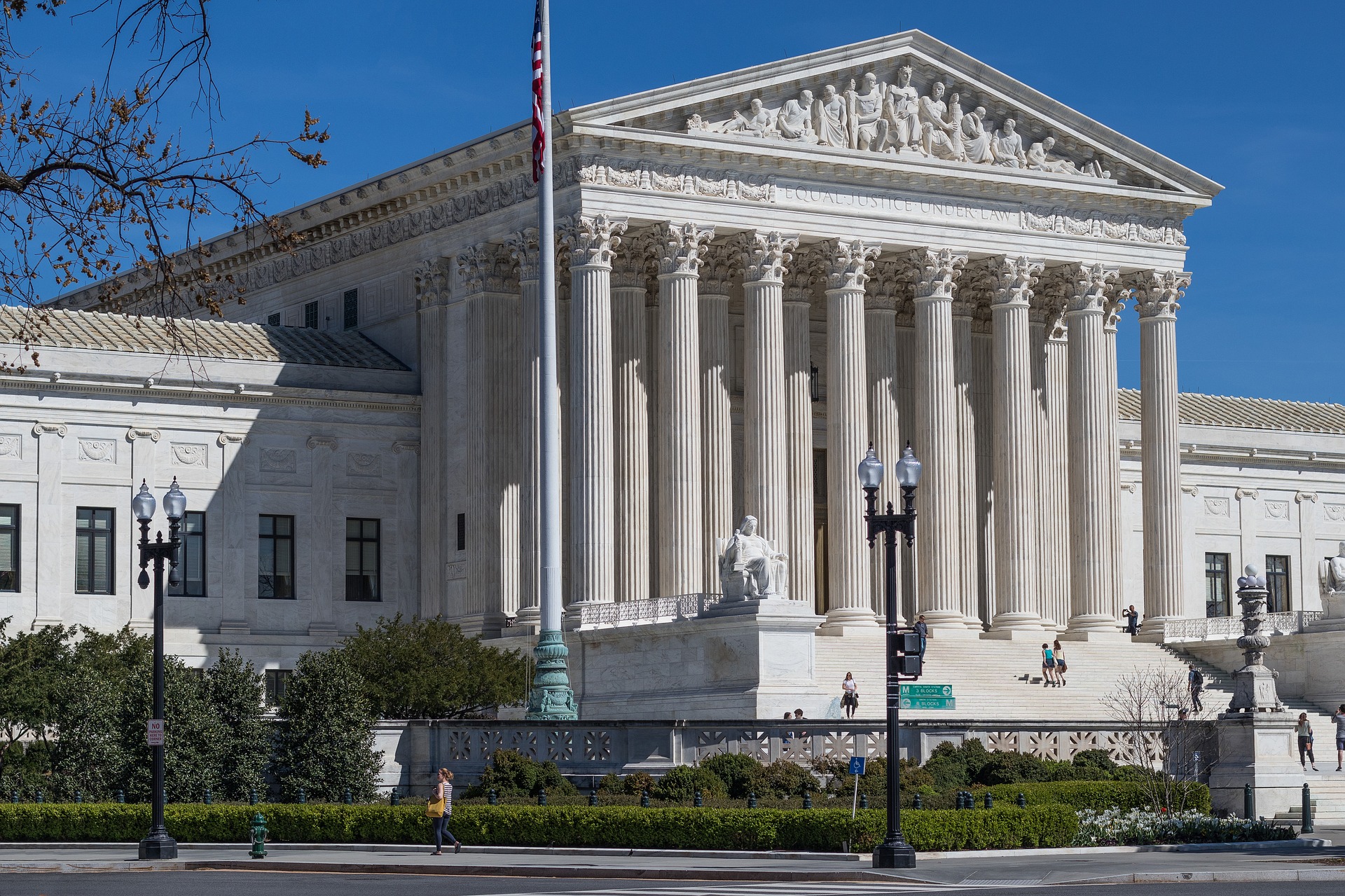
Going forward, felons should focus on the Fifth when they prepare a defense, particularly if law enforcement or the state government violates the Constitution. Regardless of how much evidence the prosecutors have, their case is automatically defunct when they deny you your rights. This includes procedural requirements, protections under the 1905 substantive due process definition, and anything else that the Double Jeopardy Amendment outlines.
You may have broken federal or state law. However, when the government’s actions don’t adhere to the Fifth, they are also violating the law. Therefore, just as you are being held accountable for it, so should they. After all, the Constitution and the Supreme Court demand that.


